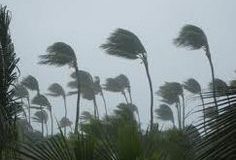
Dizziness is a common symptom of anxiety and it can make you feel as though something life threatening is happening to you. But you can learn to control and prevent dizziness by following these tips.
By the way, different people can mean different sensations when using the term dizziness. You may mean that you feel a bit lightheaded, you may mean that you literally feel unsteady on your feet and that your head is spinning or you may mean that the world around seems to be moving in different directions. Whatever meaning you attach to the word, it’s important to find one or two techniques which help you deal with it or even prevent it.
What happens when you get dizzy?
As mentioned above, the symptoms of dizziness can vary between people, but typically you will feel as though the outside world is moving or spinning around you. You may also experience a loss of balance which makes you want to sit or lay down. A quick tip is to keep your eyes open and focus on one fixed point a few metres in front of you. This often helps to reduce the sensation.
Dizziness can be caused by something as simple as getting up too quickly. When you do this, your body experience a temporary loss of blood pressure which makes you feel dizzy.
So before you let your anxiety get the better of you, just check for a moment and think about what you were doing before you felt dizzy. You could save yourself some heartache!
Please note: If you do experience dizzy spells it is best to speak to your doctor first. Dizziness can be caused by viral infections, particularly one known as labyrinthitis as well as other inner ear problems. Your doctor can also rule out other illnesses which cause dizziness.
How to treat dizziness
Once you are sure that your dizziness is caused by anxiety, you can take action. Try one of the following ideas and see how it works for you. If you keep a journal, it’s helpful to make a note about how effective the technique was for you. Sometimes we forget how helpful a technique was and it’s useful to have it written down!
Low blood sugar – if you have long gaps between eating, you are more likely to experience low blood sugar. One of the symptoms of low blood sugar is dizziness so you can easily prevent this from happening by making sure that you eat regularly. Your diet should be low in refined sugar and stimulants as this can result in low blood sugar. Slow release carbohydrates will help you regulate your blood sugar levels – nuts, apples, pears and porridge – are just some of the foods which come into this category.
Breathing – if you tend to hyperventilate when breathing, you may experience dizziness. Learning to breathe from your diaphragm will help you combat this – breathe in deeply so that your stomach expands rather than your upper chest. Then breathe out slowly – ideally your out-breath should last longer than your in-breath. It is the out-breath which is most helpful in relaxing the body so not only do you breathe properly but you relax as well!
Vitamins Approved By Dr. Clarke (The ND For Vitamin Agent.com – taking a vitamin B6 supplement contributes to the health of your nervous systems which in turn supports your balance.
Water – if you are dehydrated this can cause dizziness. Make sure you are drinking the recommended amount of water each day – this will also help you manage your anxiety symptoms too.
While dizziness is very unpleasant (and should be checked by a doctor first), if it is related to your anxiety there are some very effective self-help tips you can put into practice. Try them out and see what works best for you!

Source by Karen Field
 Vitamin Agent The Health & Naturalistic Source
Vitamin Agent The Health & Naturalistic Source





